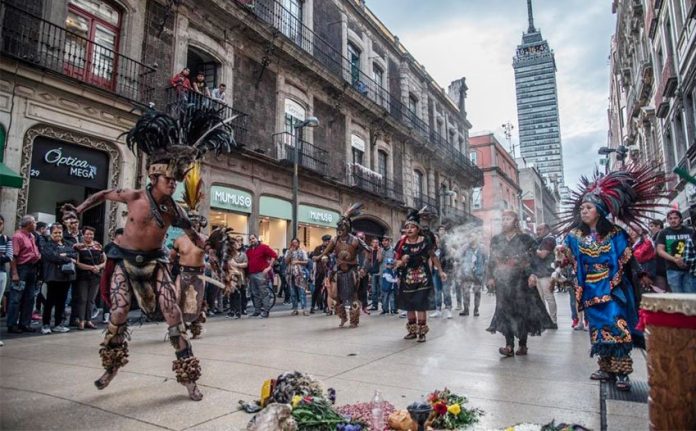Chilango, capitalino and mexiqueño. All three demonyms can be used to denote residents of Mexico City.
For female residents, replace the “o” with an “a” – chilanga, capitalina, mexiqueña.
Another demonym, defeño (or defeña), was also commonly used to describe residents of the capital when the city was known as “el DF” – the Distrito Federal (the Federal District) – but has fallen out of favor since Mexico City was given state-like status and formally became CDMX.
Confused yet?
While there are a variety of ways to refer to residents of the Mexican megalopolis, one is king – chilango, the word most commonly used to describe citizens of chilangolandia, as some people say.
But what does the word mean and where does it come from?
According to the Real Academia Española (The Royal Spanish Academy) – the institution charged with the mission of preserving the stability of the Spanish language – a chilango is a native of Mexico City or someone who belongs to the city in one way or another.
But not all Mexico City-born, tacos al pastor-loving residents of the capital will describe themselves as chilangos. In fact, many of them will outright reject the term.
Yo nací aquí, soy capitalino (I was born here, I’m a capitalino) is a common refrain.
Who are the chilangos then? Ask a self-proclaimed capitalina and she’ll say that they’re the Mexico City residents who have moved to the city from elsewhere.
Any oaxaqueño, veracruzana, poblano, chihuahuense, jalisciense, chiapaneca or yucateco who calls the national capital home is also a chilango, or chilanga as it may be.
Moving on to the origin of the word, there is plenty of scope to keep any budding etymologist intrigued.
According to the Diccionario Breve de Mexicanismos (Concise Dictionary of Mexican Terms), chilango may come from the Mayan word xilaan, meaning “messy or frizzy hair,” or xilah, which means both “hair that stands on its end or fluffs up” and “feathers of birds.”
Could chilango therefore have originated from a reference to the penachos or headdresses that were made out of feathers and worn by the Aztec rulers of Tenochtitlán, the Mexica city-state that occupied the land on which modern day Mexico City stands?
Maybe or maybe not.
Luis Fernando Lara Ramos, a linguist and researcher at the College of Mexico, said the origin of the word chilango is unclear but asserted that it doesn’t come from either a pre-Hispanic or a Latin-based language.
“We don’t know where the word came from. There are a lot of theories but none is trustworthy. What happens with these [kinds of] words is that they come from popular tradition, someone creates them and they end up being so meaningful to those who hear them that they spread quickly,” he said.
The academic said that not only is it unknown who coined the word chilango but it is also unclear where the term originated and when its use became common.
However, Lara was clear about one thing – “[The word] Chilango, first and foremost, is derogatory.”
He explained that people from places other than Mexico City often think of Mexico City residents as being self-important and the word chilangos provides a way to refer to them in a pejorative way.
In an interview with the newspaper Milenio, Lara didn’t refer to the chilango/capitalino differentiation explained above but said rather that the former is a colloquial, pejorative demonym and the latter a cultural, or politer, one.
He also said that even though chilango is generally considered derogatory, many chilangos (and chilangas) have taken ownership of the word and use it to assert their identity in a positive way.
“First and foremost, chilango is pejorative but as happens with a lot of these pejorative terms some people use them for self-affirmation. [For example] he who says, soy chilango y qué? [I’m a chilango and so what?],” Lara said.
“. . . Those who use it to assert themselves saying yo soy chilango y qué are in reality challenging the pejorative use of the word,” he added.
Even so, the linguist said his personal preference was to use the word capitalino for all residents of Mexico City.
The word mexiqueño, he added, was invented by the Mexican Academy of Language about 10 years ago but hasn’t caught on.
Mexico News Daily
